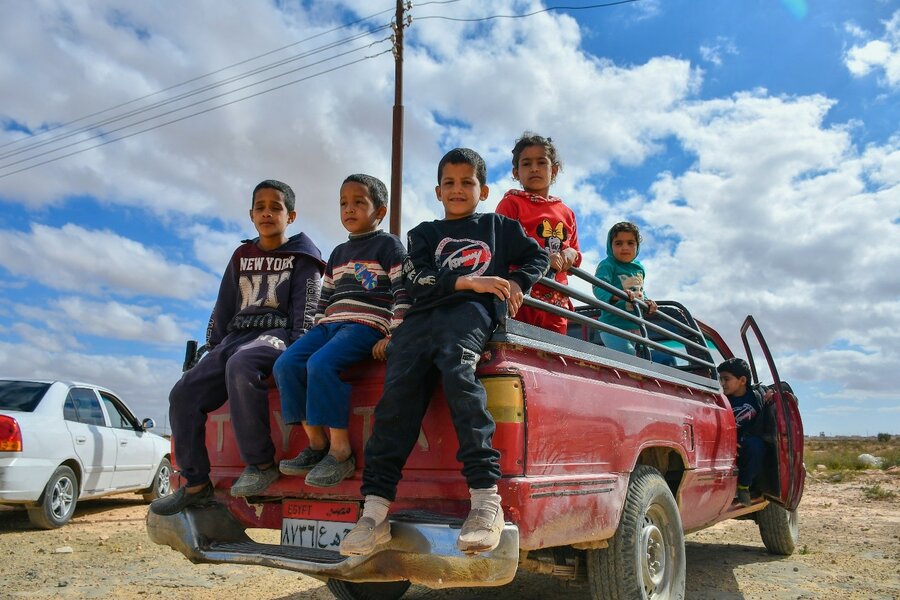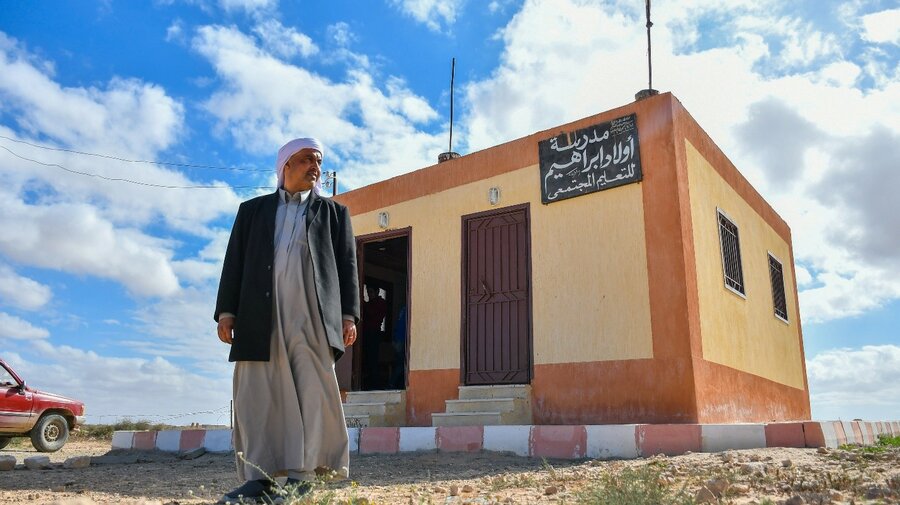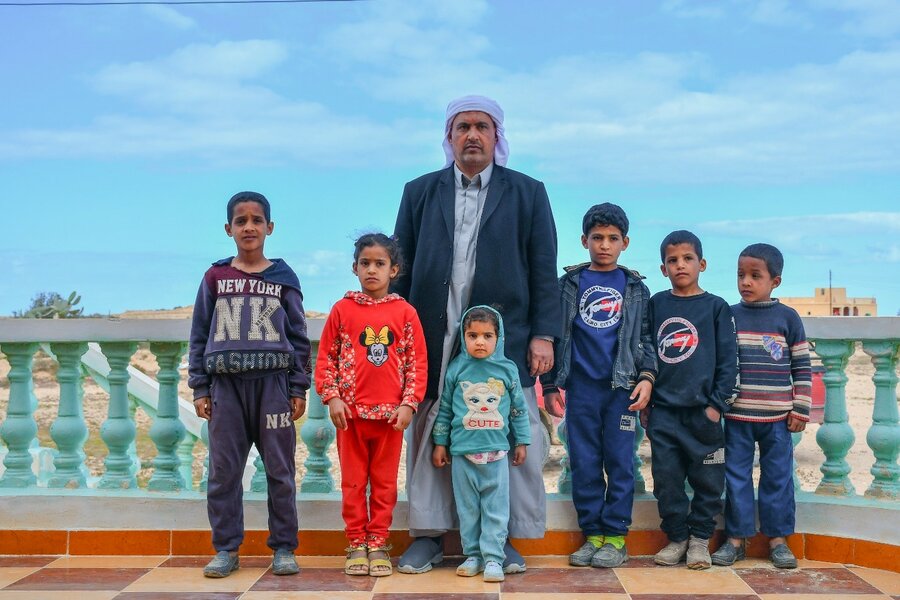How Families in a Remote, Desert Village Banded Together to Build a Community School

Mahmoud Ibrahim is one of the 300 people living in the desert village of Mogama’a Ibrahim — a remote community in Egypt’s northwestern coastal governorate of Marsa Matrouh. The town, inhabited solely by members of the Ibrahim family, lacks electricity and running water. People rely on collected rainwater for their daily needs.
There are no paved roads to connect the town with the main city center. The only way to get there is through dirt roads. Families of Mogama’a Ibrahim live off sheep and camel herding and wages from random jobs here and there.

Mahmoud’s children on a pickup truck rented for weekly shopping trips to town.
A conservative Bedouin community, people refused to send their daughters to schools that were far away (the closest public school is 4 miles from the village) and kept them at home instead.
Mahmoud’s firstborn, Hoda, was among the girls that never got to go to school.
Mahmoud says: “I wanted to educate my daughter and couldn’t, that’s when I started to think of a solution to a problem that not only concerns me but many other families around us.”

Mahmoud outside the one-classroom structure he built in Mogama’a.
Eight years ago, he rolled up his sleeves and started building a community school in his hometown with his bare hands. Even though educating girls was never a priority for the families of Mogama’a Ibrahim, Mahmoud managed to convince his grandfather to donate a piece of land he owned to build a one-classroom school.
And so, with the help of neighbors, the ‘Awlad Ibrahim Community School’ (Children of Ibrahim) was established in the heart of the community. Today, four of Mahmoud’s children — two girls and two boys — are attending the community school where the United Nations World Food Programme (WFP) is implementing a school feeding initiative. Every day a child attends, they receive a fortified date-bar snack. This covers 25 percent of their daily nutritional needs.

Mahmoud with six of his nine children.
Mahmoud also receives $46 cash assistance a month, provided his children maintain an 80 percent attendance rate. This assistance enables Mahmoud to buy a month’s worth of basic food items including pasta, rice, flour, tomato sauce and oil.
“Educations is a vital element in our lives, it’s like the air we breathe, and I have big dreams for my children to one day become doctors, engineers and teachers,” said Mahmoud.
Children are innocent victims of the forces that causes hunger and school meals are just one of the ways we are able to provide them with nutritious, healthy foods. Click here to learn more about our programs supporting hungry children and how you can help.




